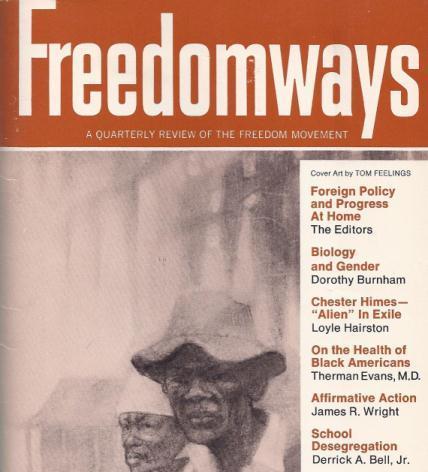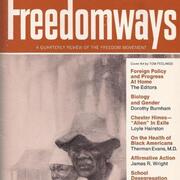
The coronavirus pandemic has further exposed health disparities and the inequality of care in the United States that health professionals, families, activists, abolitionists, journalists, and scholars have documented and decried annually across four centuries of African presence in North America.
Writing in a 1977 issue of Freedomways: a Quarterly Review of the Freedom Movement, Therman Evans, M.D., showed that "in years past and currently, the medical care system has not placed a priority on the health and medical problems of Black people; and since the technology exists, it's all a matter of priority."
Dr. Evans points to the towering paradox of premature tragic black death. The resources exist and are readily available to prevent the cause of health disparities that lead to the disproportionate loss of African-American lives.
"It's all a matter of priority," Dr. Evans wrote in 1977, and his expression remains true in 2020. Once the coronavirus became a priority globally, it was only a matter of time before data and stories revealed that prioritization did not extend to poor Black people.
"Black Americans certainly understand what it means to be a low priority," Dr. Evans wrote. "If followed, the suggestions I have made will make the health of our people more of a priority and it will be imrpoved over the next few years. Remember, a healthy people is a strong people."
Dr. Evans' optimism stemmed from the many resources he saw before him, the great riches and first-rate facilities, research and technology present in the United States.
He called on the entire nation, led by black health professionals, to lead a concerted, three-pronged charge to improve black health: "the individual (or consumer), the health professional, and the system."
Among his recommendations were:
—"At the individual or consumer level each of us must begin to accept more responsibility for our own health."
—"Our health professionals must assume the necessary roles in delivering health information to our people who need it. Black professionals in the various health disciplines have a responsibility and an obligation to be excellent, and to take the lead in the struggle to improve the health status of poor Black people."
—"They must also head up the on-going political struggle to secure more resources from the federal health establishment, and to inform, motivate and recruit more Black youth into the health professions."
—"All of us should be involved in pressuring the system (federal and private agencies and departments of health) to address the health and medical priorities of our people."
—"the United States Congress can be urged to legislate a stipulation which mandates that all advisory panels, review committees or policy boards that determine where money goes—in order to be legally constituted bodies—must have at least 15 % black representation and, in addition, the black employment goals for all grade levels must be %15 percent."
Dr. Evans plan for the future has yet to be implemented. Health disparities remain intact, and Black life continues to needlessly suffer. As Dr. Evans tells us,
"The gap that was, is."
Evans, Therman. "On the Health of Black Americans," Freedomways 17;1, 1977: 27-30.

